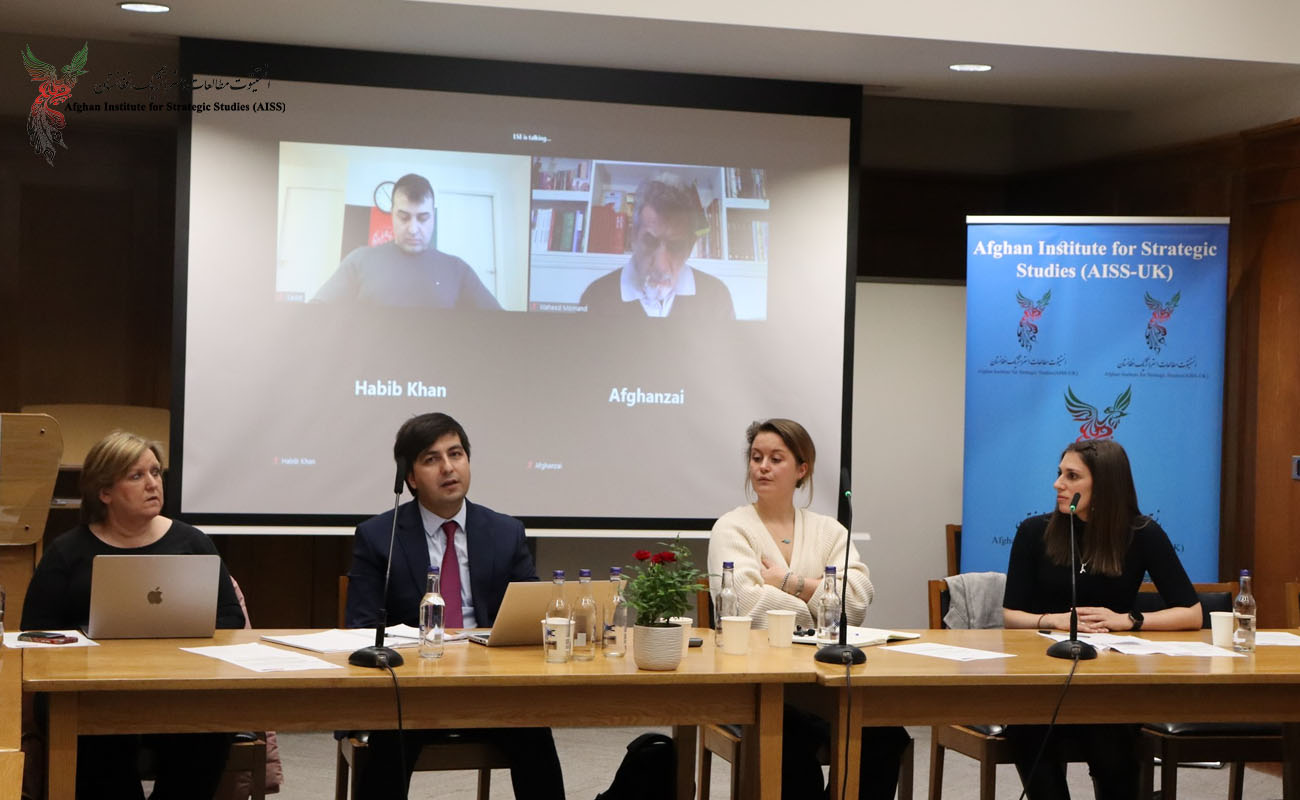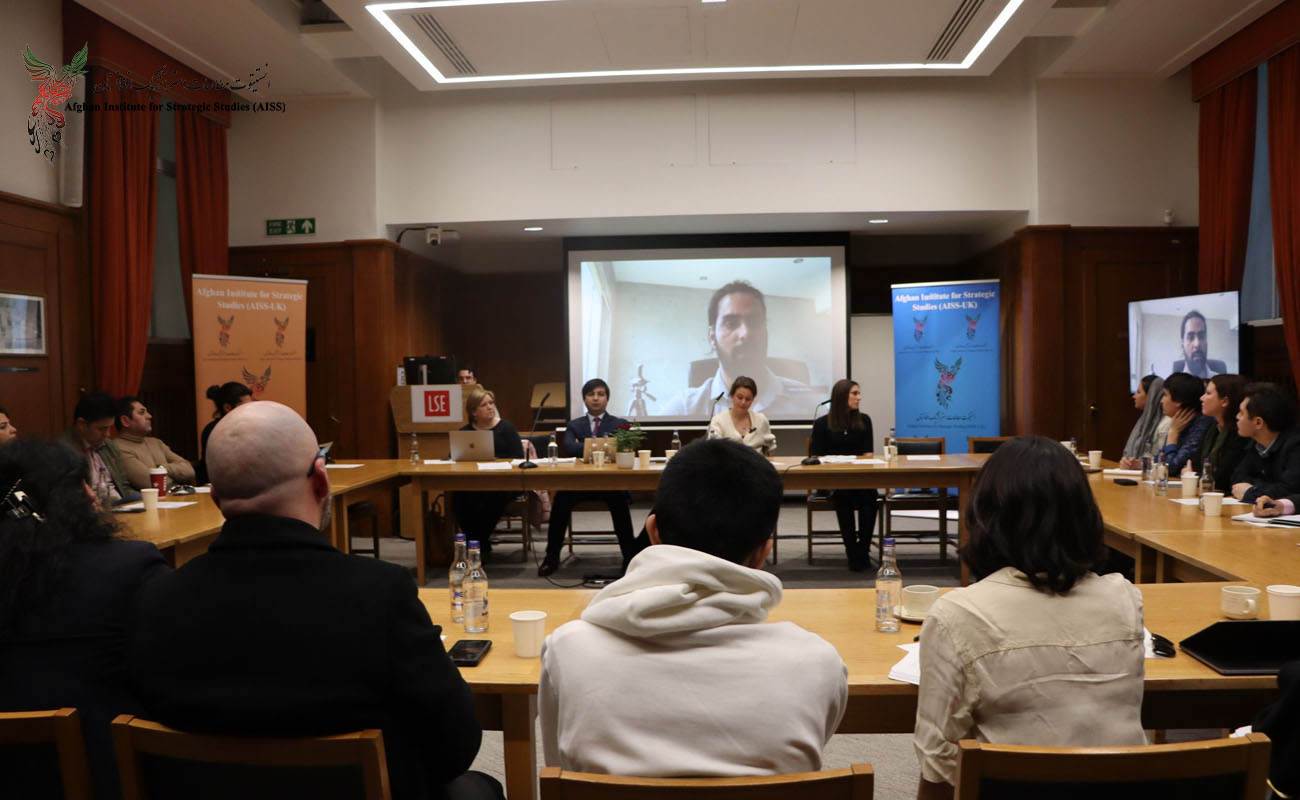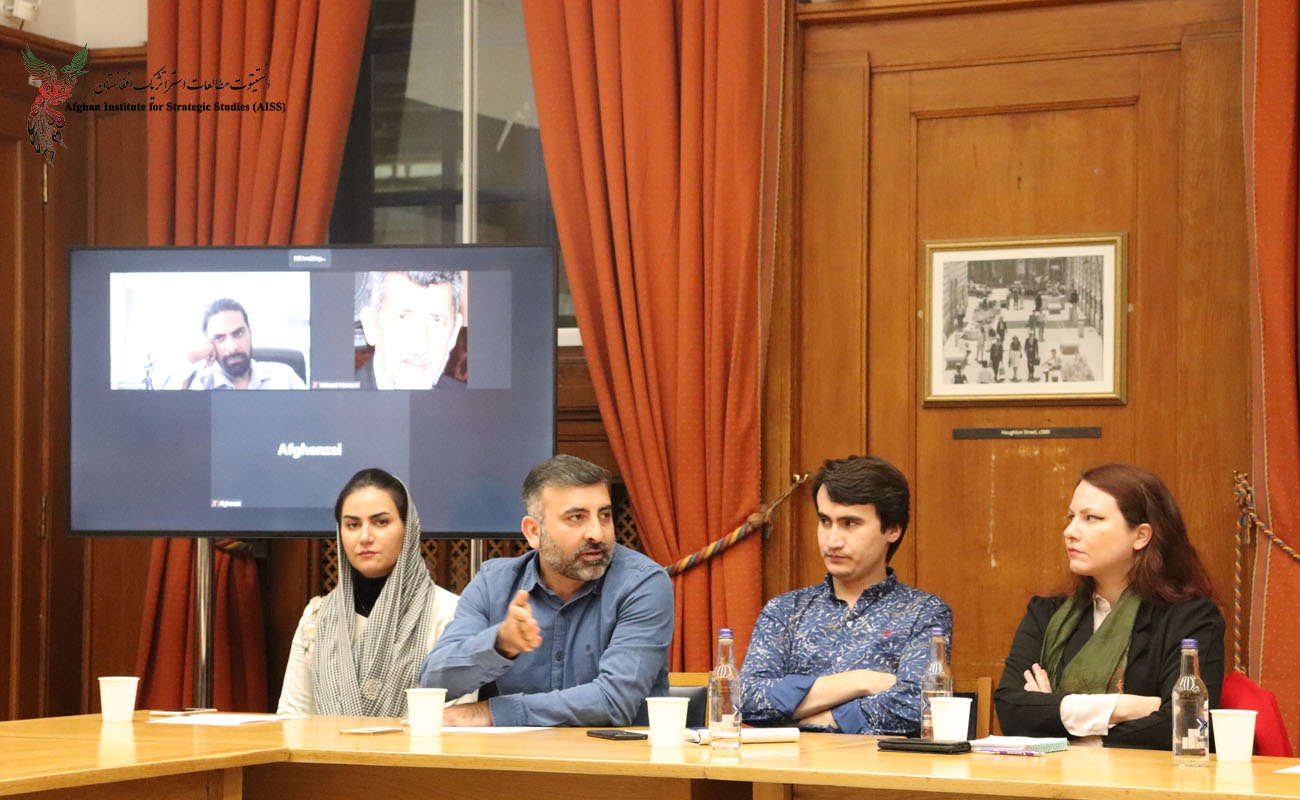In-person Roundtable Discussion on Digital Mullahs: Understanding Taliban’s Online Strategy & Policy Responses
On Friday, February 10, 2023, the Afghan Institute for Strategic Studies (AISS) in partnership with the Conflict and Civil Society Research Unit of the LSE held an in-person roundtable discussion on Taliban’s Online Strategy.
The Taliban’s victory was facilitated by many factors, including Taliban’s masterful utilisation of modern social media platforms. The Taliban did not “out-fight” their formidable military foes, but they outsmarted them; as they did not win any major military battles prior to July 2021. Alongside suicide attacks and IED bombings, social media platforms and smartphones became Taliban’s main “weapons”. While the Afghan government and its Western/NATO partners developed strategies to tackle the former threats and conventional/terrorist weapons, they failed to develop corresponding understanding and ensuing responses to the Taliban virtual threats.
This program brought together speakers and participants in two roundtables from academic, media, advocacy, business, and policy backgrounds to exchange views on acquiring a clearer understanding of the Taliban’s online strategies and infrastructure and explore effective policy responses by the concerned communities.
The program featured Mr. Belal Sarwary, an Independent Journalist, Mr. Zia Shahreyar, Senior Journalist, BBC Persian, Mr. Shah, a Researcher and Former Official of the I.R. of Afghanistan, Ms. Anouk Theunissen, a Senior Investigator, and Reporting officer, Afghan Witness/Centre for Information Resilience, Mr. Tajuddin Sorouch, Senior International Correspondent, Afghanistan International TV, Mr. Habib Khan Totakhil, Journalist and Founder of Afghan Peace Watch and Lisa McInerney, Specialist in Violent Organizations. The panels were moderated by Lynne O’Donnell, Journalist/Author, and Katerina Tiliakou, Journalist, Afghanistan International TV.
Speakers discussed the Taliban’s online strategy and how this group spread their narratives locally and globally at a large scale and to what extent their policy has changed since they took over. Briefing the participants, Lynne O’Donnell said information dissemination played an important role in the Taliban’s victory “the faster we get the news the faster we act and Taliban were much faster than any other groups”. Lynne O’Donnell added that the Taliban had a coalition of information dissemination which helped the group to succeed in its narrative. According to Lynne O’Donnethe ll, the Taliban had good advices from foreigners who had invested interest in Afghanistan.
Mr. Bilal said that Taliban leaders always projected their profile as the saver and heroes of the country while Afghanistan crises are the result of Taliban insurgencies. Mr. Bilal added that what Afghan government faild was the inconsistency while the Taliban were much more successful in spreading their narratives consistencly and forcefully. Mr. Bilal stressed that among the different groups of Taliban, the “digital Talib” who are the foreign passport holders, were the most aggressive groups who actively defeated anyone who was against Taliban ideology.
Mr. Zia also shed light on the main elements of the Taliban’s narrative and said that for the first time when Taliban took power in Afghanistan, their narrative was to fight corruption, evilness, and implement Sharia Law and their narrative remained consistent. Mr. Zia added that Madrasa students were the main constituency that enabled this group and justified their narratives.
Ms. Lisa talked about how different groups and afghan users should engage with social media companies to articulate their views against the Taliban. She also outlined the variety of dilemmas and considerations for tech companies in related policy development and enforcement, along with potential solutions to reduce the impact.
Mr. Soroush outlined how the Taliban are coordinating their online messaging on different platforms to different audiences and stakeholders. Mr. Sorous said the Taliban from a long time ago have been communicating through online platform and have been outreaching their narratives in more than seven national and international languages while the Afghan government was communicating only in two national languages (Pashtu and Dari). Mr. Soroush also touched on media policies in exile and how they stand on the side of the people by reporting impartially the problem of the people and shortcomings of the Taliban.
Mr. Tota Khil pointed out how different stakeholders should respond to the Taliban’s online activities. He specifically talked about the #BanTaliban hashtag that he is leading and what should be the collective response from the people. In addition, he touched upon how Twitter has been used as a favorite tool for the Taliban to grow their presence and spread their acts of violence and fear.
Anouk spoke on some findings and case studies on the Taliban's use of social media, including propaganda and the undermining of critics, as well as the importance of information integrity for the advancement of community response against Taliban propaganda.



